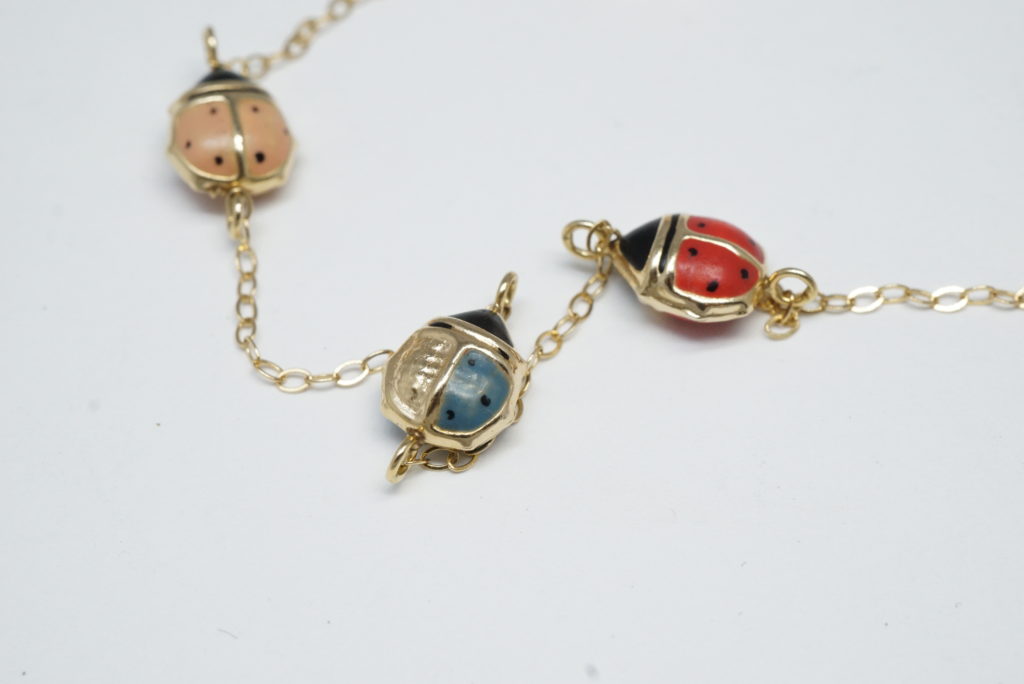What Causes a Jewelry Allergy?
Written by Annabelle
September 21, 2018
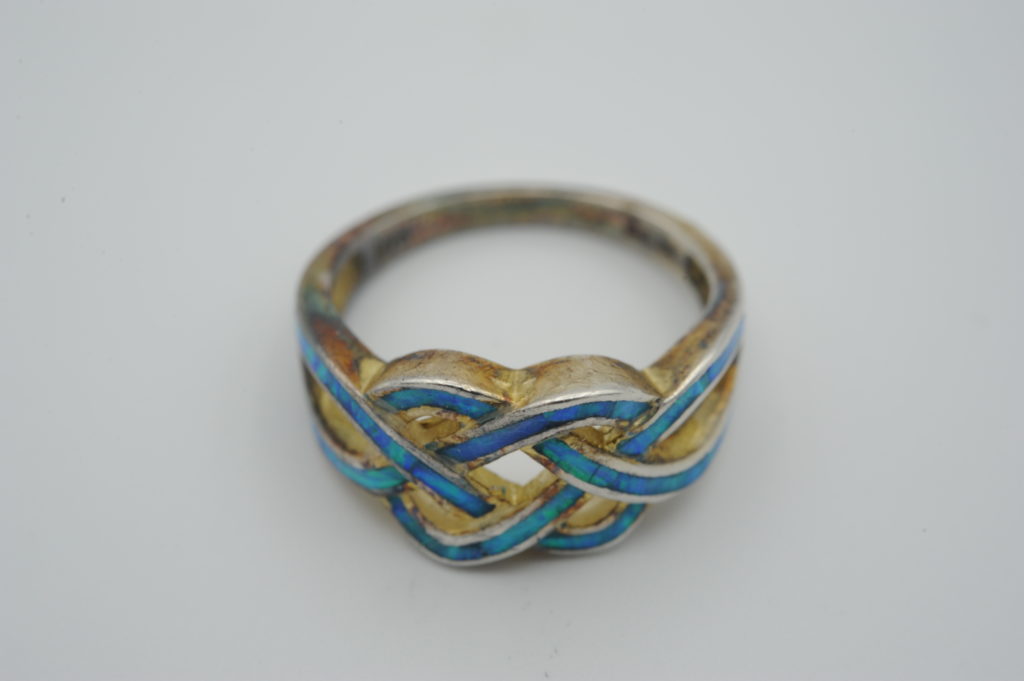
Jewelry Allergies
Having a jewelry allergy can be quite annoying, especially if you really like the piece in question. But what exactly causes the reaction? Read more to find out why jewelry allergies happen and ways to combat them.
When it comes to jewelry allergies, the type of metal is usually the underlying cause as to why you might be itchy and red. Since it’s rare for jewelry to use pure metal, most pieces of jewelry on the market are made out of alloys. Alloys are combinations of various metals such as gold, silver, copper, brass, and nickel. Cheap jewelry is mostly low-quality alloy; however, even fine jewelry contains alloys in the form of white or rose gold, in order to get the desired color.
Copper Allergy
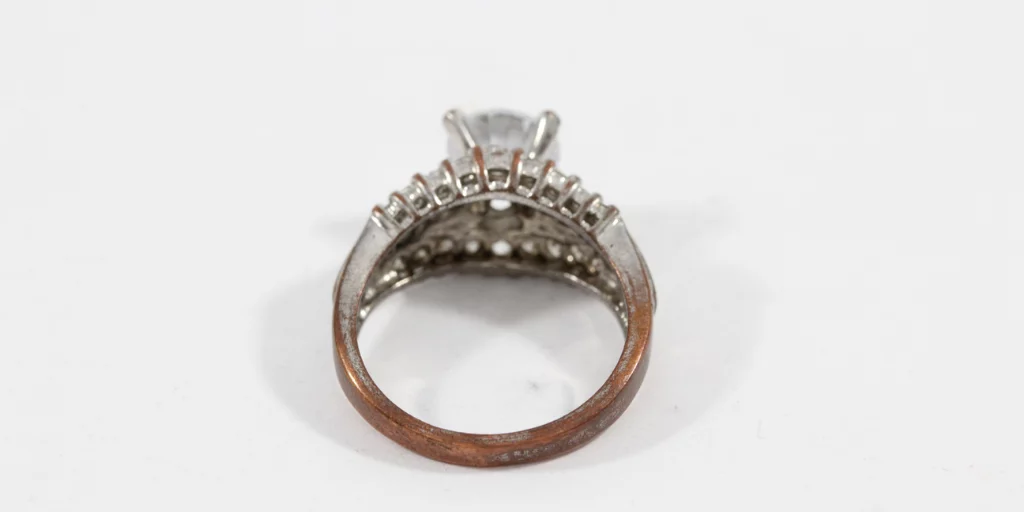
This copper ring needs to be re-plated.
Copper by itself is often used as a bohemian and unconventional choice for jewelry. It’s also an ingredient in the mixture that creates rose gold. If you’re allergic to copper, you may want to test out your resistance to rose gold as well!
Nickel Allergy

This zinc alloy is coated in nickel.
The most common type of metal that provokes an allergic reaction, nickel can be found in a large number of alloys. Trace amounts of it are even present within stainless steel and white gold, which can irritate very sensitive skin.
Brass Allergy
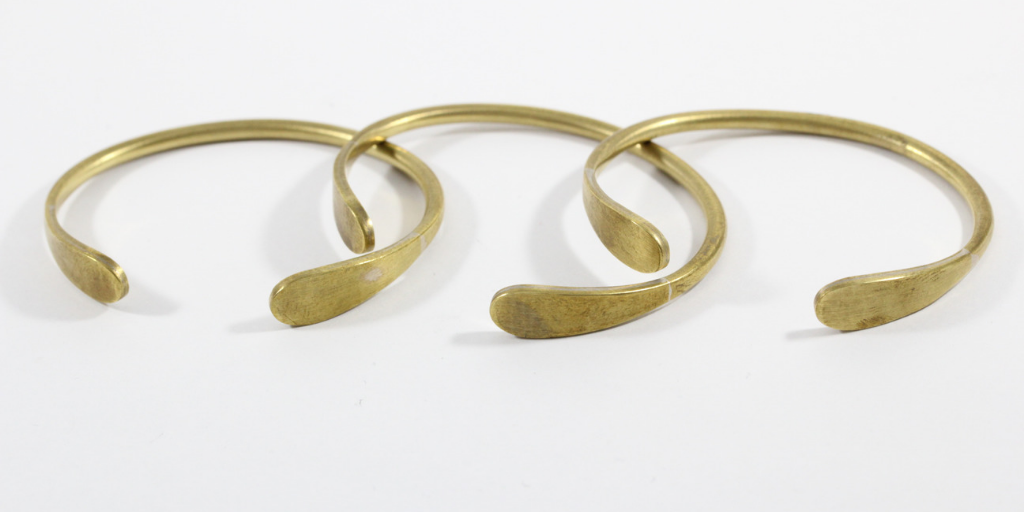
A set of brass bracelets
Brass is now becoming popular thanks to the raw minimalism trend in jewelry nowadays. Unfortunately, because of its nature as an alloy with copper in it, it has a tendency to trigger allergic reactions and turn skin green.
Silver and Gold
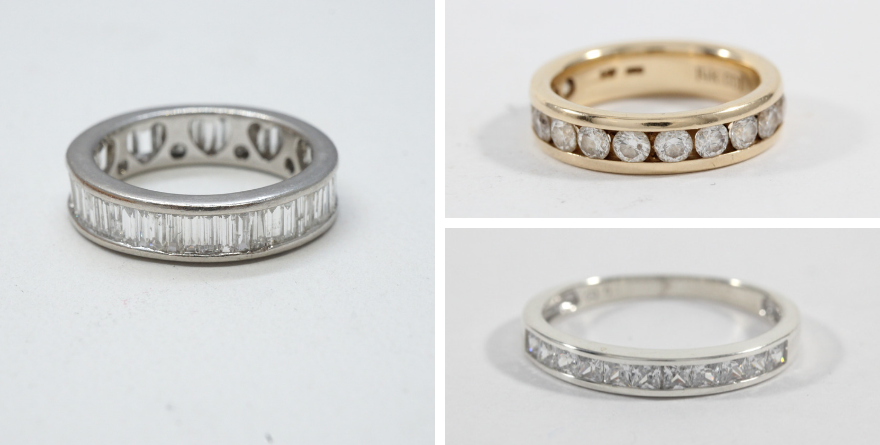
These white gold and gold rings can cause an allergic reaction for some very sensitive people.
Traditionally, people don’t take these into consideration when they think about jewelry allergies. Not so fast! Silver and gold-toned jewelry is not necessarily 100% pure metal. It can be silver or gold-plated, which means that a thin layer of precious metal is placed over a base of cheaper metal such as brass. Even jewelry that is marketed as actual silver or yellow gold can still contain metals that cause allergic reactions, so be sure to check the karat or percentage, such as 18k gold or 925 sterling silver.
Jewelry Allergy Solutions
Now that you have a better understanding of what makes you so itchy after putting on your newly acquired ring, we have some solutions for you!
Stick to Metals You Can Wear
If you’re not allergic to sterling silver and gold that’s 14k and up, buy that type of jewelry. It’s really not worth getting an ear infection for costume pieces. On the bright side, you can now claim that you have exclusive taste!
Jewelry Allergy Coating
Various types of spray are available on the market to coat jewelry, if you really want to wear them that badly. However, it can be a daunting task to go through each piece, and over time the spray wears off.
Rhodium Plating
Rhodium is a very durable metal that is hypoallergenic and can be plated onto jewelry to brighten it. It’s a popular choice for people who want to touch up family heirlooms or vintage pieces.
There are a variety of issues and solutions when it comes to jewelry allergies, but we hope we’ve at least covered the basics so you can get a better sense of what’s causing your skin to react. If you’re still concerned about triggering an allergic reaction from wearing your jewelry, send it over to us at Quick Jewelry Repairs so that we can take a look and rhodium plate it for you!
